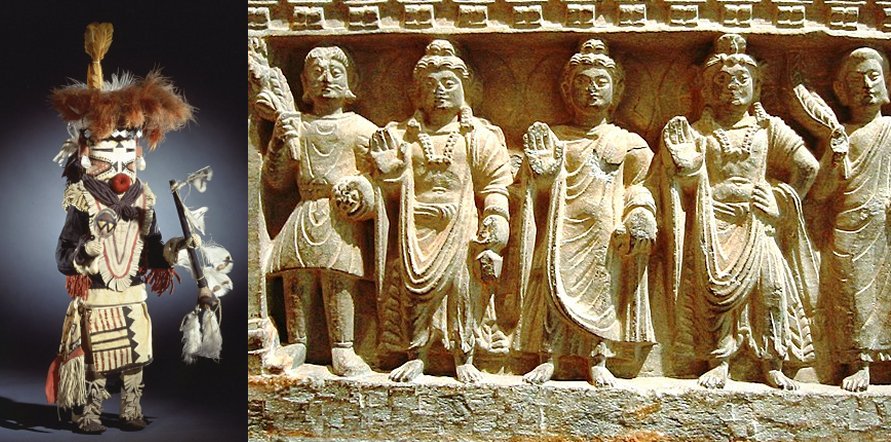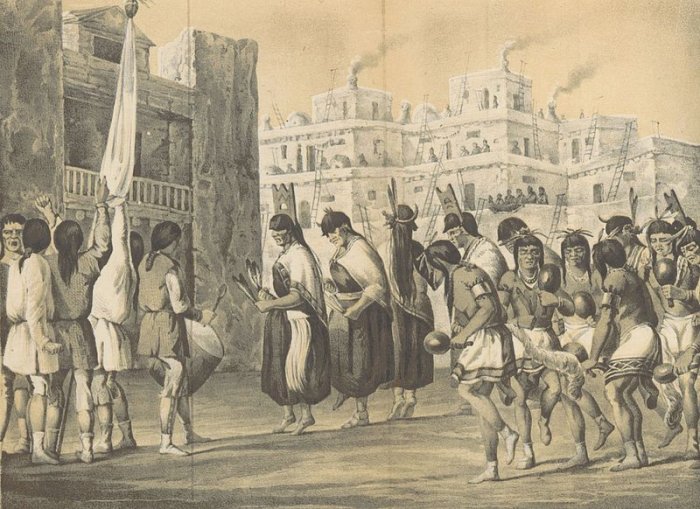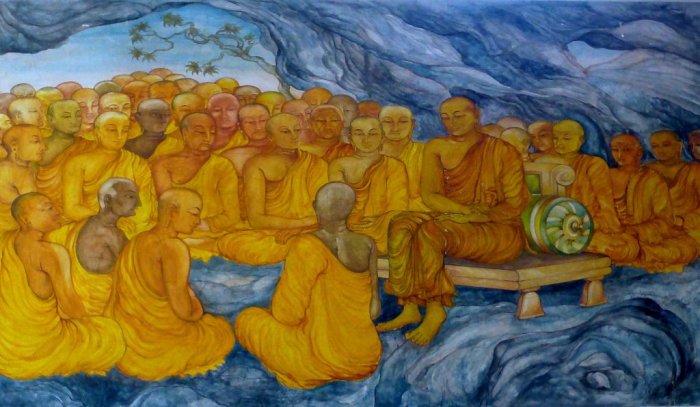Mysterious Zuni Indians And Japanese People May Be Related – Did Buddhist Monks Reach North America In 1350?
Ellen Lloyd - AncientPages.com - The Zuni Indians in New Mexico are unlike any other Native American tribe. Not only is their language, religion, and blood type surprisingly different from all other tribes, but according to a thought-provoking theory, the mysterious Zuni Indians may also have close ties with the people of Japan.
Most scientists think the Zuni Indians are different because they lived in isolation. According to linguists, the Zuni have maintained the integrity of their language for at least 7,000 years.
Left: She-we-na (Zuni Pueblo). Kachina doll (Paiyatemu), late 19th century. Brooklyn Museum - Right: An early Buddhist triad. 2nd-3rd century CE. Gandhara, Wikipedia
However, the Zuni do share many words from Keresan, Hopi, and Pima pertaining to religion and religious observances. However, Professor Nancy Davis from the University of Chicago has an alternative theory that she thinks explains the Zuni Indian's puzzling ancient history.
Professor Davis suggests the Zuni Indians came in close contact with Buddhist monks who migrated in the 14th Century from Japan to the west coast of what is now the American continent. In her book, The Zuni Enigma: A Native American People's Possible Japanese Connection, Professor Davis presents evidence supporting an ancient Japanese-Zuni connection.
Professor Davis has studied the Zuni Indians for decades and has made several visits to the Zuni pueblo. Her theory is unpopular among other scientists, but she points out that no one has so far managed to prove her wrong.
Image of Zuni Pueblo created during the U.S. Army Corps of Topographical Engineers' 1851 expedition to Arizona which was led by Captain Sitgreaves. Credit: British Library
She acknowledges there have been no DNA studies to confirm or refute her hypothesis. Still, she also points out striking similarities between these two cultures, such as blood-group characteristics. Blood Type B is frequent in East Asian populations but nearly absent in most Native Americans. Zuni Indians, on the other hand, have a high incidence of Type-B blood.
Zuni Indians And Japanese People Share Biological Links And Have Similar Mythology
The ancient Japanese- Zuni connection was born when Professor Davis one day came across a chart detailing the Chinese system of Yin Yang. Yin Yang symbol is widely recognized throughout the world. Still, the beginning and philosophy related to this ancient symbol originate in ancient China and the old beliefs of the Chinese people, who tried to understand the universe's workings. She discovered the Yin Yang symbol was remarkably similar to a chart on the Zuni religion.
 Next, she compared Zuni and Japanese languages and noticed a long list of nearly common words.
Next, she compared Zuni and Japanese languages and noticed a long list of nearly common words.
She searched for clues for more than 30 years and pieced together her ideas. Her research resulted in a theory that her colleagues dismissed. She collected evidence based on biological links through blood type, tooth shape, skull configuration, and a prominent kidney ailment in Zuni and the Japanese. Professor Davis also discovered that both cultures had a mythology that embraced ocean images.
Professor Davis explains that the Japanese social structure suffered during the 11th or 12th centuries because of repeated natural disasters, including a series of earthquakes. During this time, Japanese sailors began to leave the country in successive waves.
Buddhist Monks Reached America In 1350
One of the last of these waves of migration set sail around 1350.
Among the sailors were Buddhist monks searching for Itiwanna, the center of the universe. Based on her research, Professor Davis surmises that favorable currents landed the monks in California.
As the pilgrims moved eastward, they attracted Native Americans drawn to the notion of Itiwanna. Disparate clans united in a kind of search for Oz. In an area of what is now west-central New Mexico and east-central Arizona, just south of Chaco Canyon, they believed they had found their Emerald City.
Did the Zuni Indians meet Buddhist monks in 1350? Credit: Wikipedia
The Zuni Indians' tribal name is A'shiwi (Shi'wi), meaning "the flesh." The name "Zuni" was a Spanish adaptation of a word of unknown meaning.
Professor Davis thinks settlers in the Zuni territory were an amalgam of Japanese, Anasazi, and A:shiwi.
Many scientists consider the Japanese- Zuni connection far-fetched due to the lack of archaeological evidence. The traditional idea is that Native Americans are descended from people who migrated from Siberia 12,000 years ago, traveling across the Bering Strait.
If the Japanese-Zuni theory is correct, it could re-write our history books. Still, much more evidence is needed before the scientific community will treat Professor Davis' ideas seriously.
Written by Ellen Lloyd – AncientPages.com
Updated on April 11, 2023
Copyright © AncientPages.com All rights reserved. This material may not be published, broadcast, re-written or redistributed in whole or part without the express written permission of AncientPages.com
Expand for referencesMore From Ancient Pages
-
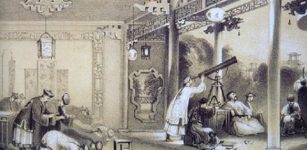 On This Day In History: Sunspot Observed By Chinese Astronomers During The Han Dynasty – On May 10, 28 BC
News | May 10, 2016
On This Day In History: Sunspot Observed By Chinese Astronomers During The Han Dynasty – On May 10, 28 BC
News | May 10, 2016 -
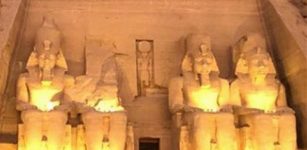 Magnificent Solar Alignment Phenomenon In Abu Simbel – The Sun Illuminates The Face Of Pharaoh Ramses II
Featured Stories | Nov 11, 2020
Magnificent Solar Alignment Phenomenon In Abu Simbel – The Sun Illuminates The Face Of Pharaoh Ramses II
Featured Stories | Nov 11, 2020 -
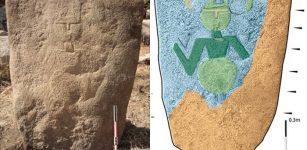 Unique Balchiria Stelae Engraved With A Goat-Like Figure Found On Corsica Is A Puzzle
Featured Stories | Feb 3, 2020
Unique Balchiria Stelae Engraved With A Goat-Like Figure Found On Corsica Is A Puzzle
Featured Stories | Feb 3, 2020 -
 Hundreds of Monumental ‘Kites’ Spotted in Arabian Desert
Archaeology | Sep 12, 2022
Hundreds of Monumental ‘Kites’ Spotted in Arabian Desert
Archaeology | Sep 12, 2022 -
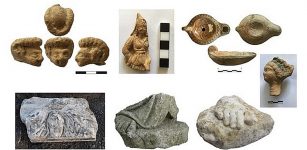 Excavations Of Ancient Theater In 2,400-Year-Old City Of Smyrna, Turkey
Archaeology | Feb 13, 2019
Excavations Of Ancient Theater In 2,400-Year-Old City Of Smyrna, Turkey
Archaeology | Feb 13, 2019 -
 Ancient DNA Helps Reveal Social Changes In Africa 50,000 Years Ago That Shaped The Human Story
DNA | Jun 7, 2022
Ancient DNA Helps Reveal Social Changes In Africa 50,000 Years Ago That Shaped The Human Story
DNA | Jun 7, 2022 -
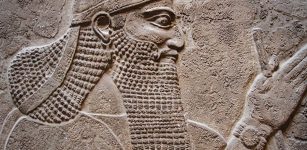 Unexpected Discovery Of 600 B.C Assyrian Palace In Shrine Destroyed By Isil Militants
Archaeology | Mar 2, 2017
Unexpected Discovery Of 600 B.C Assyrian Palace In Shrine Destroyed By Isil Militants
Archaeology | Mar 2, 2017 -
 Rare Magic Mirror In Cincinnati Museum Has A Secret Hiding In Plain Sight
Artifacts | Jul 19, 2022
Rare Magic Mirror In Cincinnati Museum Has A Secret Hiding In Plain Sight
Artifacts | Jul 19, 2022 -
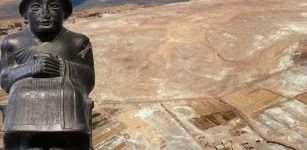 Drone Footage Reveals Ancient Mesopotamian City Lagash Was Made Of Marsh Islands
Archaeology | Oct 14, 2022
Drone Footage Reveals Ancient Mesopotamian City Lagash Was Made Of Marsh Islands
Archaeology | Oct 14, 2022 -
 Catherine Of Alexandria Courageously Confronted 50 Pagan Philosophers And Was Sentenced To Death
Featured Stories | Oct 15, 2018
Catherine Of Alexandria Courageously Confronted 50 Pagan Philosophers And Was Sentenced To Death
Featured Stories | Oct 15, 2018 -
 Unique Page From Rare Illuminated Manuscript And Thousands Of Treasures Found Under The Floor Of Oxburgh Hall
Archaeology | Aug 18, 2020
Unique Page From Rare Illuminated Manuscript And Thousands Of Treasures Found Under The Floor Of Oxburgh Hall
Archaeology | Aug 18, 2020 -
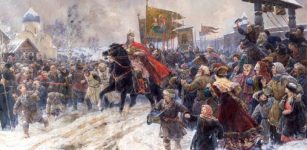 On This Day In History: ‘Battle On The Ice’ – Army Of Prince Nevsky Against Teutonic Knights Was Fought – On Apr 5, 1242
News | Apr 5, 2016
On This Day In History: ‘Battle On The Ice’ – Army Of Prince Nevsky Against Teutonic Knights Was Fought – On Apr 5, 1242
News | Apr 5, 2016 -
 Ogham: Unique Celtic Alphabet Used By Druids And Abandoned During Christian Era
Featured Stories | Jul 9, 2021
Ogham: Unique Celtic Alphabet Used By Druids And Abandoned During Christian Era
Featured Stories | Jul 9, 2021 -
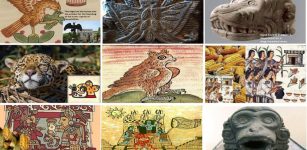 10 Aztec Symbols Explained
Ancient Symbols | Mar 20, 2018
10 Aztec Symbols Explained
Ancient Symbols | Mar 20, 2018 -
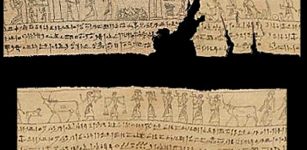 300 BC Mummy Shroud Fragment In NZ Finds Match In US
Archaeology | Jul 18, 2021
300 BC Mummy Shroud Fragment In NZ Finds Match In US
Archaeology | Jul 18, 2021 -
 1,900-year-old ‘water law’ unearthed in Laodicea
Civilizations | Aug 26, 2015
1,900-year-old ‘water law’ unearthed in Laodicea
Civilizations | Aug 26, 2015 -
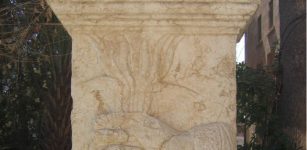 Mystery Of The Anonymous God Of Palmyra Finally Solved By Scientists
Archaeology | Jun 21, 2022
Mystery Of The Anonymous God Of Palmyra Finally Solved By Scientists
Archaeology | Jun 21, 2022 -
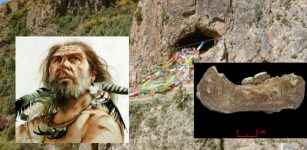 Denisovans Were First To Adapt To High Altitude And Harsh Conditions Of Tibetan Plateau
Archaeology | May 2, 2019
Denisovans Were First To Adapt To High Altitude And Harsh Conditions Of Tibetan Plateau
Archaeology | May 2, 2019 -
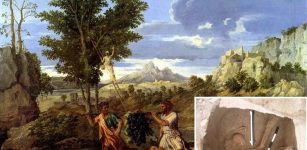 Mysterious Biblical Canaanites – What Ancient DNA Reveals About Their Fate
Archaeology | Jul 28, 2017
Mysterious Biblical Canaanites – What Ancient DNA Reveals About Their Fate
Archaeology | Jul 28, 2017 -
 First Americans Reached The Continent 15,000 Years Earlier Than Previously Thought – Chiquihuite Cave Reveals
Archaeology | Jul 22, 2020
First Americans Reached The Continent 15,000 Years Earlier Than Previously Thought – Chiquihuite Cave Reveals
Archaeology | Jul 22, 2020

